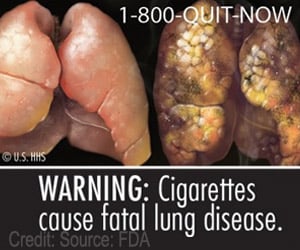The National Institute for Health and Clinical Excellence (NICE) draft guidance on drinking during pregnancy has added to confusion about safety
The National Institute for Health and Clinical Excellence (NICE) draft guidance on drinking during pregnancy has added to confusion about safety because it's at odds with other official guidance. In this week’s BMJ, two experts debate the issue.
Until May of this year, the Department of Health advised pregnant women in England not to drink “more than one to two units of alcohol once or twice a week,” writes Pat O’Brien, a consultant obstetrician at the Institute for Women’s Health in London. Since then, both the department and the British Medical Association have changed their stance and pregnant women are now told to avoid alcohol completely.But there is no new evidence, so why the change, he asks?
Fetal alcohol syndrome is a serious condition and is clearly a consequence of heavy alcohol intake during pregnancy, he writes. Nevertheless, there is still no evidence that low to moderate alcohol intake in pregnancy has any long term adverse effects.
He believes that telling women to avoid alcohol completely is therefore overly paternalistic and that women are entitled to decide for themselves (and their babies).
The reasons given for the changed advice are that there is confusion, the advice is unclear, and people don’t understand what is meant by a unit of alcohol. But O’Brien argues “if we in the medical and midwifery professions have failed to communicate clearly to women the meaning of safe limits, then we need to put this right – not take the easy option (for us) and ban alcohol completely.”
He points to the US, where the surgeon general has since 1981 advised the complete avoidance of alcohol in pregnancy, and all alcohol containing products carry a health warning, yet the incidence of frequent drinking in pregnancy rose from 0.9% in 1991 to 3.5% in 1999. A complete ban is also is likely to increase under-reporting of alcohol consumption as women feel afraid and embarrassed to admit they are drinking during pregnancy, he adds.
Advertisement
But Vivienne Nathanson, Director of Professional Activities at the BMA, argues that abstinence is the safest message for women who are pregnant or planning a pregnancy.
Advertisement
Evidence is also continuing to emerge on the possible risks of prenatal alcohol exposure at low to moderate levels, she says. For example, studies examining the effects of chronic consumption indicate that low to moderate levels of exposure (two to five units a week) delay the development of the fetus’s nervous system and may have a permanent effect. A recent large prospective study has also found that occasional low to moderate drinking during the first trimester may have a negative and persistent effect on children’s mental health.
Current guidelines on sensible drinking in the UK can be misinterpreted as people may not clearly understand what units or “standard drinks” are, she adds. Many women will also not know they are pregnant during the early part of the first trimester, during which time they may continue to drink in their pre-pregnancy fashion with no awareness of the risk to their unborn child.
Given the current uncertainty regarding the level of risk to the developing fetus, the lack of clear guidelines, and the confusion about consumption levels, the only sensible message for women who are pregnant or planning a pregnancy must be complete abstinence from alcohol, she concludes.
Source-BMJ
VEN /J











